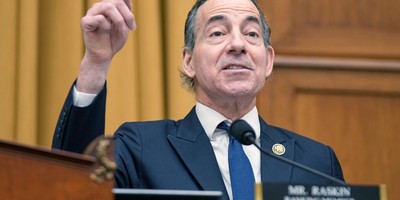Conservatives in the Senate should not treat Supreme Court nominee Sonia Sotomayor in the same disgraceful manner that Senate liberals treated Clarence Thomas when he was nominated to the court in 1991, but they should subject her to a similar philosophical litmus test.
It is this simple: Does she believe the Constitution includes a "right" to kill an unborn child?
If she does, she is morally and philosophically unqualified to serve on the court, and conservatives should say so and vote against her for that reason.
When President George H.W. Bush nominated then-U.S. Appellate Court Judge Clarence Thomas to the Supreme Court, Democratic Sen. Howard Metzenbaum of Ohio, a member of the Senate Judiciary Committee, was unapologetic: He would subject Thomas to an explicit pro-abortion litmus test.
"I'm through reading tea leaves and voting in the dark," said Metzenbaum. "I will not support yet another Reagan-Bush Supreme Court nominee who remains silent on a woman's right to choose and then ascends to the court to weaken that right."
Democratic Sen. Patrick Leahy of Vermont, also a member of the Judiciary Committee, made a similar statement to Thomas himself during a Sept. 10, 1991, confirmation hearing.
"The Senate and the public have a right to know what a nominee thinks about critical issues before that nominee is confirmed to a lifetime seat on the court," said Leahy. "So let me make this very clear, Judge Thomas. In recent years we've danced around the question of where nominees stand on a woman's fundamental right to abortion. Now, this is one of the burning social issues of our time. It is the single issue about which this committee and the American people most urgently wish to know the nominee's views."
Recommended
But it was Senate Judiciary Chairman Joe Biden, the Delaware Democrat, who actually posed the question to Thomas. "Well, Judge," said Biden, "does that right to privacy in the liberty clause of the Fourteenth Amendment protect the right of a woman to decide for herself in certain instances whether or not to terminate a pregnancy?"
Thomas dodged it.
"Senator," he said, "I think that the Supreme Court has made clear that the issue of marital privacy is protected, that the state cannot infringe on that without a compelling interest, and the Supreme Court, of course, in the case of Roe v. Wade has found an interest in the woman's right to -- as a fundamental interest -- a woman's right to terminate a pregnancy. I do not think that at this time I could maintain my impartiality as a member of the judiciary and comment on that specific case."
Despite this dodge, Senate Democrats clearly suspected that Thomas embraced an "originalist" interpretation of the Constitution and would be disinclined to sustain Roe v. Wade. Lacking the votes to defeat him for his judicial philosophy, however, they viciously attempted to assassinate his character.
Led by the man who is now vice president of the United States, Judiciary Committee Democrats subjected Thomas to what Thomas called -- to Joe Biden's face -- "a high-tech lynching for uppity blacks who in any way deign to think for themselves."
Thomas survived Biden's lynch mob and went on to become the most consistent and forceful voice on the court for interpreting the Constitution according to the meaning originally invested in it by the Framers.
The correct answer to the question of whether the Constitution guarantees a "right" to kill an unborn child was delivered by then-Associate Justice William Rehnquist in his dissenting opinion to Roe v. Wade itself. It was a resounding no.
Rehnquist's argument was historically and intellectually unassailable -- unless you believe that a simple majority of the nine Supreme Court justices has the authority to rewrite the Constitution.
When the 14th Amendment was ratified in 1868, Rehnquist noted, there were 36 state and territorial laws on the books restricting abortion. Twenty-one of those very laws were still on the books and still enforced in 1973, when the court considered Roe.
"The only conclusion possible from this history," said Rehnquist, "is that the drafters did not intend to have the Fourteenth Amendment withdraw from the states the power to legislate in respect to this matter."
Sonia Sotomayor should be asked in her confirmation hearing whether she believes the Constitution guarantees a right to kill an unborn child.
If she says it does, it means she believes Supreme Court justices have the power to change the meaning of the Constitution itself, even to the point of depriving a whole class of human beings of their most fundamental right.
There can be no better reason for denying confirmation to a would-be justice.

























Join the conversation as a VIP Member